Mozart: Don Giovanni (Pérez)
Introduction
The following introduction is quite shamefully lifted from the other Giovanni review on the site :
In his `birthday` year, we have yet another version of Mozart`s `Dramma giocoso` from 1787 about the debauched life of the eponymous character, and his final downfall at the hands of his victims, this time filmed over three nights in October 2005 at the Teatro Real, Madrid.
Don Giovanni is a Spanish nobleman renowned throughout Europe as a great seducer (as he would call it) or rapist and murderer (as everyone who comes across him would say), and travels with his servant Leporello, whose main role is to act as a lookout and decoy)
His latest `conquest` is Donna Anna, who manages to escape his clutches and chase him out. Her father, the Commendatore catches up with Giovanni, but is killed for his trouble. Donna Anna and her lover, Don Ottavio seek revenge.
Leporello contsantly attempts to get his master to change his ways, but this time is interrupted by one of the Don`s exes, Donna Elvira, who is most likely in love with Giovanni. Leporello explains in great detail that she is not exactly the only woman in his life - he`s had 1003 in Spain alone!
The Don`s next bit of fun is to try and seduce the peasant Zerlina, who is about to get married to Masetto (he never lets Class get in the way of a good relationship - however brief). Zerlina interrupts yet again, and explains to Anna and Ottavio the Don`s true character after they appeal to him to help find her father`s murdered. Donna Anna then recognises the Don as the man she`s hunting.
The Don is holding a masked ball, and Anna, Ottavio, Elvira have been invited. They plan to take revenge. During the ball, he again attempts to seduce Zerlina, but she doesn`t put up with it and asks everyone to stand up against him, which they try to do, but Giovanni and Leporello escape.
Giovanni now targets Elvira`s maid, and swaps clothes with Leporello so that his own servant can lure Elvira elsewhere. While disguised, Masetto appears intent on killing Giovanni, but doesn`t recognise the Don in front of him, thinking it`s Leporello. The Don takes advantage of the situation, and beats Masetto to a pulp before disappearing.
In the meantime, Leporello is still in disguise himself and is challenged by Masetto, Zerlina, Ottavio and Anna when he turns up with Elvira. He quickly shows them who he actually is, and yet more death is vowed upon the Don, even though Elvira is secretly still in love with him.
The Don and Leporello are hiding in a mausoleum, when they hear the ghost of the Commendatore demanding repentance. Giovanni arrogantly orders Leporello to invite the ghost to supper instead.
A little later, the Don is eating supper at home to be interrupted by Elvira yet again. She begs him to repent his actions, but he refuses. Another visitor arrives, in the shape of the Commendatore. He too demands Giovanni`s repentance, but after several more refusals, drags Giovanni down to Hell.
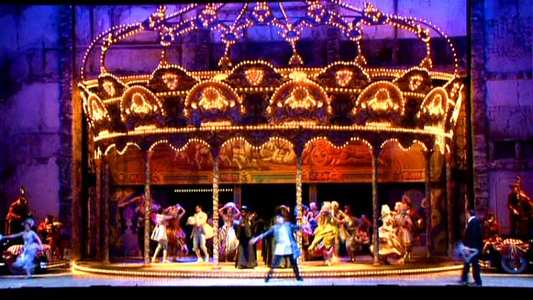
Video
Again, as it`s an Opus-Arte disc, the video is presented in a NTSC 16:9 Anamorphic transfer (using high-definition cameras dontcha know). Despite not having a high-def TV, the quality is superb throughout, even though much of the opera is set at night, and so lighting is subtle to say the least.
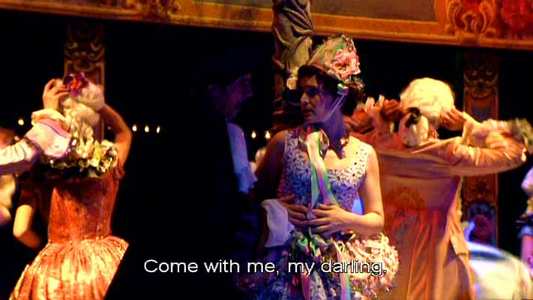
Audio
The DTS sound (also in stereo if you should so wish to choose this option) is very clear indeed, although can tend towards being a little too shrill. Nothing a bit of amplifier tweaking doesn`t solve though. There are no noticeable balance problems between stage and pit whatever the position of the singers.
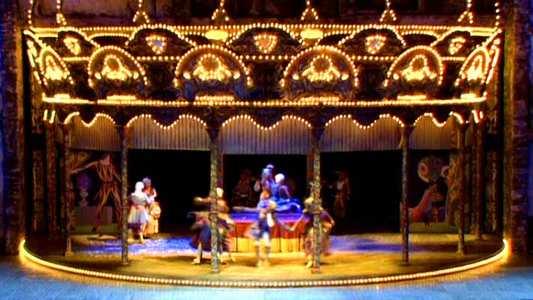
Features
Extras are a little disappointing. Together with the now expected `Illustrated Synopsis` (still shots from the performance with a voiceover) and the `Cast gallery` (which consists of, well, pictures of the cast together with their names), we have three `interviews` with the the director (Lluis Pasqual), conductor (Victor Pablo Pérez) and Carlos Ãlvarez (Giovanni). The interviews last for about 30 minutes in total and much of what we learn about the production is repeated by someone else, although it was nice to get some understanding of what the newsreel footage in the final chorus was all about.
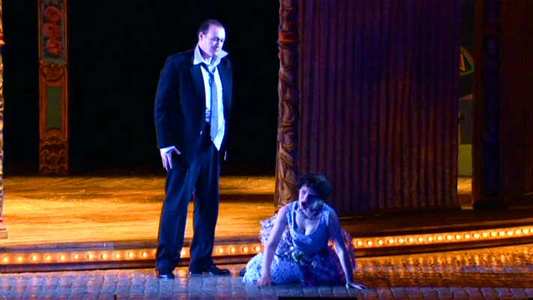
Conclusion
So, this is my second Don Giovanni this year, and despite some minor reservations, it`s a huge improvement in almost every way on the production from Barcelona.
My first reservation (once I had sorted out the shrillness) is the consistency of Pérez`s conducting. He is able to keep the music flowing quite wonderfully, leaving a minimal break (if any at all) between recitatives and arias, but some tempi really do feel uncomfortable. The main Allegro in the overture is a case in point, sitting just on the side of `leisurely` and so loses much of the forward momentum which is needed here. Also, there seemed to be a major disagreement in the tempo of the Canzonetta, with Ãlvarez quite noticeably dragging things back to his own speed, but things sort themselves out...eventually. We also have some premature applause at the end of `O sai chi l`onrore`, again it seems to so with some peculiarities in the conducting and overall, a lot of the string playing lacks clarity, due in no small part to the fact that there`s an over-abundance of vibrato in much of the playing. Less is more in this sort of music.but opinions vary.
This is a very fine production indeed. Set in 1940s Spain, there are obviously going to be some political points to be made as it was performed in Madrid, but Lluis Pasqual doesn`t shy away from possibly shocking some, and offending others, notably in the newsreel footage at the end (although I`m still confused as to why the Don appears as `the director` when it`s all over). Perhaps it will become clear if I thought about it a bit longer.
The performances are superb in almost all respects.
Carlos Ãlvarez (Giovanni) and Lorenzo Regazzo (Leporello) are a perfect match, and could quite easily swap roles if necessary, which is a great help as they often do this as part of the story. Ãlvarez creates a very domineering and violent character, with absolutely no scruples, and this is balanced nicely by his sidekick. Leporello`s character can go either way, but we certainly sympathise with him here, within reason.
All the female roles are portrayed brilliantly, with Maria José Moreno being a fantastic Zerlina, quite easily coping with her opening wedding song (as opposed to the mess that occurred in the Barcelona production), and gets through `Vedrai, carino..` beautifully.while riding a bike. If anything goes above and beyond the call of duty in an opera, then this is it.
`Ah fuggi il traditor` can so easily sound harsh, but is nicely understated by Sonia Ganassi, who delivers a believeable Donna Elvira, caught between a rock and a hard place in her feelings towards the Don.
I was also very impressed with José Bros (Don Ottavio), who, despite a tendency to `stand and deliver`, has a very melliflous tone (perhaps too sweet in places) and deserves his ovation at the end.
If there is any weakness at all in the singing, then it`s the less-than-scary voice of the Commendatore (Alfred Reiter). He is fine in the first scene before being killed, but lacks the sheer force and dread you need to hear when he reappears as Giovanni`s nemesis in statue form. Luckily, the music still has enough power and momentum (fair play to Pérez, he pulls out all the stops when really necessary) to carry the audience into Hell with the Don.
Overall then, and despite the initial reservations, this is certainly a Giovanni to be reckoned with. It contains just the right amount of humour, mixed with some shocking violence, and has one of the best Act 1 finales for this opera that I`ve seen. If it was recorded over three evenings then there has obviously been some fairly seamless editing going on. Certainly better than the Barcelona production, and even has a good few swipes at Karajan`s rather staid (yet finely performed) performance on DG.
Recommended.
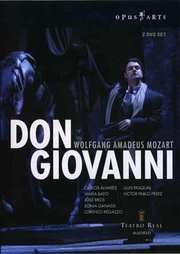
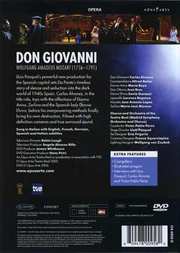




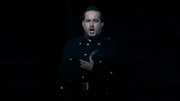
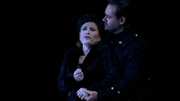
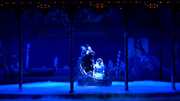
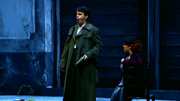
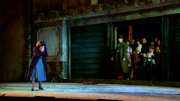
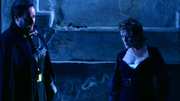
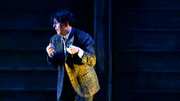
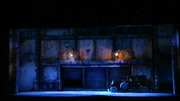
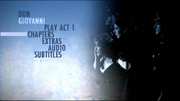






























Your Opinions and Comments
Be the first to post a comment!